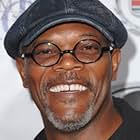Mo' Better Blues
- 1990
- Tous publics
- 2h 9min
NOTE IMDb
6,7/10
14 k
MA NOTE
Le trompettiste de jazz Bleek Gilliam prend des décisions douteuses dans sa vie professionnelle et romantique.Le trompettiste de jazz Bleek Gilliam prend des décisions douteuses dans sa vie professionnelle et romantique.Le trompettiste de jazz Bleek Gilliam prend des décisions douteuses dans sa vie professionnelle et romantique.
- Réalisation
- Scénario
- Casting principal
- Récompenses
- 1 victoire et 3 nominations au total
Charlie Murphy
- Eggy
- (as Charles Q. Murphy)
Avis à la une
After the commercial and critical success of "Do The Right Thing," in which Lee announced his arrival as a major player, he choose to follow up his breakthrough with a more personal film. If you examine history, it seems all iconoclasts choose to do so after their first big success ("The Conversation," "Close Encounters Of The Third Kind," "Talk Radio"), and Lee decided to pay homage to what he's always referred to simply as "the music." Set in then-present day 1990, "Mo' Better Blues" tells the tale of Denzel Washington as Bleek Gilliam, a selfish trumpeter who fronts his own jazz quintet in an upscale Brooklyn club. The strength of the film deals with Bleek juggling his loyalties. On the love side, Bleek is caught between two women; Clarke is a sexy bombshell in constant need of Bleek's attention who's too busy centering in on his music. She's also an aspiring singer hoping Bleek will give her a chance to shine. Bleek, obviously, does not want to share the spotlight. Indigo is a thoughtful schoolteacher who is not fragile with Bleek's tremendous ego but is careful with his somewhat callous heart. At work, Bleek is wrestling with a hungry band demanding pay raises given the success they're achieving at the "Beneath The Underdog" club. Clumsily working towards the band's raise is Giant, Bleek's lifelong friend and incompetent manager, who also has a considerable gambling problem. Bleek must decide whether to trust Giant or risk losing his band, while deciding how long he can keep up the game between Indigo and Clarke.
This, simply, is one of my favorite Lee films. Thank God someone finally made a jazz film for the late 20th century, jazz had not received a proper modern makeover since 1961's "Paris Blues." Lee creates a wonderful, intimate world set off by moody lighting in shades of red, yellow and blue. His camera and editing - which was spontaneous and lively in "Do The Right Thing" - is slow and deliberate here, carefully punctuated in all the right places. This film marked the debut of some of Lee's trademark camera moves, including the 'gliding sidewalk' dolly and his slow-spin-upward pans.
Like his previous films, Lee is adept and balancing out scenes between comedy and drama. A lot of the 'band' scenes are engagingly funny, mostly guy talk with a spin of that "cool daddy jazz vibe" added. Lee is also skillful at making Bleek the antagonist of the film without rendering him completely unlikable. The "Love Supreme" montage ending seemed to stretch the film for longer than some would have liked, but I feel it was justified in order to illustrate the beauty and necessity of Bleek's redemption. Lee was also smart to reduce screen time given to the film's true protagonist, saxophonist Shadow Henderson (rendered with cool, suave sophistication by Wesley Snipes), in order to keep the audience focused on Bleek. You will also get a delicious sampling of great jazz in this film if you're a novice to such. Aside from the concert numbers written and performed by Branford Marsalis and the dreamy jazz score by Lee's father, Bill, there are great pieces by John Coltrane, Miles Davis and Dizzy Gillespie, among others. A cool, sexy film.
This, simply, is one of my favorite Lee films. Thank God someone finally made a jazz film for the late 20th century, jazz had not received a proper modern makeover since 1961's "Paris Blues." Lee creates a wonderful, intimate world set off by moody lighting in shades of red, yellow and blue. His camera and editing - which was spontaneous and lively in "Do The Right Thing" - is slow and deliberate here, carefully punctuated in all the right places. This film marked the debut of some of Lee's trademark camera moves, including the 'gliding sidewalk' dolly and his slow-spin-upward pans.
Like his previous films, Lee is adept and balancing out scenes between comedy and drama. A lot of the 'band' scenes are engagingly funny, mostly guy talk with a spin of that "cool daddy jazz vibe" added. Lee is also skillful at making Bleek the antagonist of the film without rendering him completely unlikable. The "Love Supreme" montage ending seemed to stretch the film for longer than some would have liked, but I feel it was justified in order to illustrate the beauty and necessity of Bleek's redemption. Lee was also smart to reduce screen time given to the film's true protagonist, saxophonist Shadow Henderson (rendered with cool, suave sophistication by Wesley Snipes), in order to keep the audience focused on Bleek. You will also get a delicious sampling of great jazz in this film if you're a novice to such. Aside from the concert numbers written and performed by Branford Marsalis and the dreamy jazz score by Lee's father, Bill, there are great pieces by John Coltrane, Miles Davis and Dizzy Gillespie, among others. A cool, sexy film.
This was a frustrating movie for me because it was at times brilliant, yet there are a few things that could have been done better.
Spike Lee shows why he is revered as a writer director, with beautiful dynamic shots, intercut with smooth jazz. It is a charming presentation. Also the dialogue is interesting and feels natural and spontaneous. The combination of strong writing and acting makes for interesting conversations.
The things I found frustrating was the lack of a focused or interesting story. Also Spike Lee's performance was very weak compared to Denzel's and he should have stayed out of the movie. He actually took a lot of the attention from the other characters and tried to make the movie about himself.
Spike Lee shows why he is revered as a writer director, with beautiful dynamic shots, intercut with smooth jazz. It is a charming presentation. Also the dialogue is interesting and feels natural and spontaneous. The combination of strong writing and acting makes for interesting conversations.
The things I found frustrating was the lack of a focused or interesting story. Also Spike Lee's performance was very weak compared to Denzel's and he should have stayed out of the movie. He actually took a lot of the attention from the other characters and tried to make the movie about himself.
I really enjoyed this film. Everyone has a Bleek in his life: someone whose love of his life is all he knows, wants to know, etc. However, we always lose the love of our life for various reasons. Then, what do you do when the love of your life is suddenly taken from you? That is this film's theme. Bleek's only love was jazz music. Bleek's music was the only thing that mattered to him. Music overrode everything: an incompetent manager (who was his best friend), his lovers, and the contentment of his bandmates (the money issue which is related to having an incompetent manager). When Bleek lost the love of his life (watch the film to learn why), he was forced to make some hard choices about his life and face some unpleasant truths (something we've all had to do).
I enjoyed the score and the jazz pieces included in this film (after all, Bleek played the trumpet). I really liked the cinematography in this film because the film showed the beauty of New York City - the brownstones, the Manhattan skyline (a brief glimpse), the Brooklyn Bridge, etc.
I enjoyed the score and the jazz pieces included in this film (after all, Bleek played the trumpet). I really liked the cinematography in this film because the film showed the beauty of New York City - the brownstones, the Manhattan skyline (a brief glimpse), the Brooklyn Bridge, etc.
This is a good romantic film featuring two of hollywood's biggest stars in denzel and wesley. What struck me most about this film was what it shared with the film called "Unforgiven". Without giving away too much, I was shocked that the hero here was found to clark kent leanings more than superman ones. Unsettling at first, I grew to appreciate that the protagonists small steps and minor triumphs are okay and arguably more realistic than the shafts of the world. I grew to accept the vulnerability of this spike lee character called bleak.
When this was on TV the other night, I expected to stick out about two minutes of it. Being a follower of Tarantino, all I'd heard recently of Spike Lee was wholly negative. In addition, I know nothing of black culture and/or jazz. Imagine my surprise then when, two hours later, I found myself entirely intoxicated by the blend of atmosphere, empathy, humour and pure depth of character and relationship in this exceptional movie. Next up, I'm watching all his other movies... Quentin, make your peace!
Le saviez-vous
- AnecdotesDenzel Washington and Wesley Snipes were trained to mimic the playing of the instruments they play in the film (trumpet and saxophone), by musicians Terence Blanchard and Donald Harrison. Washington later admitted that he was lucky if he could play three notes of a simple tune prior to filming, and ended up being able to correctly mimic most of the songs performed in the film, as did Snipes.
- GaffesDuring the performance of Bleek's "Pop Top Urban 40 Funk Love ... Song", Bleek's headgear changes from hat to baseball cap.
- Crédits fousFlavor Flave of the rap group Public Enemy spells out the letters in "Universal" as the studio logo appears on the screen.
- ConnexionsEdited into Cynda Williams: Harlem Blues (1990)
- Bandes originalesHarlem Blues
Written and performed by Branford Marsalis Quartet and Terence Blanchard
Vocals by Cynda Williams
Meilleurs choix
Connectez-vous pour évaluer et suivre la liste de favoris afin de recevoir des recommandations personnalisées
- How long is Mo' Better Blues?Alimenté par Alexa
Détails
- Date de sortie
- Pays d’origine
- Langues
- Aussi connu sous le nom de
- A Love Supreme
- Lieux de tournage
- Sociétés de production
- Voir plus de crédits d'entreprise sur IMDbPro
Box-office
- Budget
- 10 000 000 $US (estimé)
- Montant brut aux États-Unis et au Canada
- 16 153 593 $US
- Week-end de sortie aux États-Unis et au Canada
- 4 387 360 $US
- 5 août 1990
- Montant brut mondial
- 16 153 593 $US
- Durée2 heures 9 minutes
- Couleur
- Rapport de forme
- 1.85 : 1
Contribuer à cette page
Suggérer une modification ou ajouter du contenu manquant

Lacune principale
By what name was Mo' Better Blues (1990) officially released in India in English?
Répondre






































